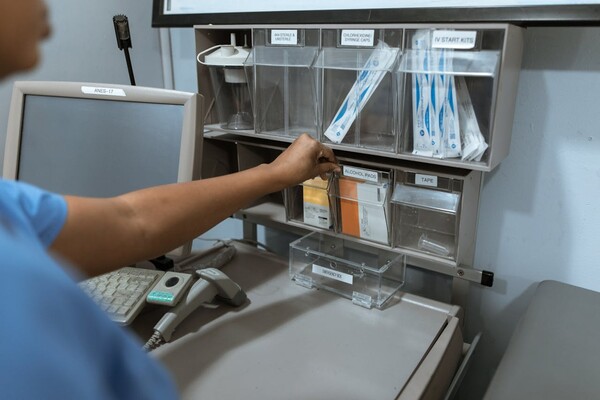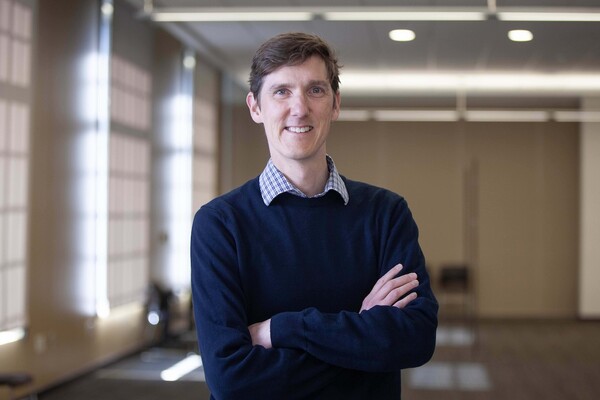Mobile Menu
- Education
- Research
-
Students
- High School Outreach
- Undergraduate & Beyond: Community of Support
- Current Students
- Faculty & Staff
- Alumni
- News & Events
- Giving
- About

Like nearly eight million Canadians, Natasha Trehan lives with chronic pain, which can be debilitating.
“People don’t always understand that disability can come in different shapes and forms. The impacts aren’t just physical,” says Trehan, who was diagnosed with juvenile idiopathic arthritis at 13. “Pain can exclude people from being able to work, attend school or socialize. The mental toll and fatigue that go along with living with pain are real.”
Next month, the Canadian Pain Society’s members and international guests will gather at the University of Toronto for the organization's Annual Scientific Meeting to talk about practical solutions and new ideas to drive meaningful change for Trehan and people like her.
The fourth-year University of Ottawa student in translational and molecular medicine will be among those in attendance, and is no stranger to talking about pain. Through her non-profit Take a Pain Check Foundation, Trehan hosts a podcast that explores life with a chronic disease through the voices of young people with lived experience and those who care for them.
One of several presentations Trehan is excited to see will be by Vina Mohabir. Mohabir is a doctoral student at U of T’s Institute for Health Policy, Management and Evaluation, who will share her experiences navigating the transition from paediatric to adult care.
Mohabir is part of a slate of speakers who will present on Friday, May 2. The day, dubbed the Landmark Gathering for Change, is open to the public and will feature TED-style talks from health professionals, researchers and people with lived experience of chronic pain.
Presenters include Ethan Nadelmann, executive director of the Drug Policy Alliance, who will speak about drug control, prohibition and alternatives; former chief of the defence staff of Canada, General Walter Natynczyk, on veteran health and well-being; Stanford University Professor Sean Mackey on the ways science is transforming treatment and empowering patients; and a look at migraine treatments through history and new guidelines to prevent them by London neurologist Alexander Melinyshyn.
The president of the Canadian Pain Society, Hance Clarke, will give remarks and presentations throughout the four-day event. Clarke notes that chronic pain, in addition to being the number one driver of disability in Canada, can be associated with the development of a substance use disorder. Optimizing care pathways to avoid this unintended outcome must continue to be a focus in the years ahead, he says.
“Pain is embedded the opioid crisis,” says Clarke, a professor of anesthesiology and pain medicine at U of T’s Temerty Faculty of Medicine, who is also medical director of the pain research unit at Toronto General Hospital, University Health Network and director of the Transitional Pain Service.
“Eighty per cent of people who have an opioid use disorder link their use of these medications back to pain. To help change outcomes, we need to identify problems earlier and tackle the opioid issues upstream,” Clarke says.
Another key theme that conference speakers will address is the importance of ensuring diverse voices in pain research and practice — to confront systemic factors that create barriers to care for people from marginalized communities.
On that theme, Professor Anna Hood from the University of Manchester will deliver a plenary session highlighting racial inequity in paediatric pain care, particularly for young people with sickle cell anemia. Dartmouth College Professor Tor Wager will lead a second plenary session about the neuroscience of pain.
For Trehan, the conference will be a welcome opportunity to hear more about the pain community’s efforts to learn from one another and provide better care for people who live with pain in its various forms.
“When I was first diagnosed, I searched online for other kids with arthritis but only found adults with arthritis who had kids,” she says. “I’m proud to use my voice to help others and glad to see more young people speaking out, too.”
The Canadian Pain Society's annual scientific meeting will take place May 1-4 at the University of Toronto. The Landmark Gathering for Change, open to the public and people with lived experience of pain, will run on May 2; those who wish to attend only this date can purchase one-day tickets. View more details about the overall program and registration on the Canadian Pain Society’s website.

